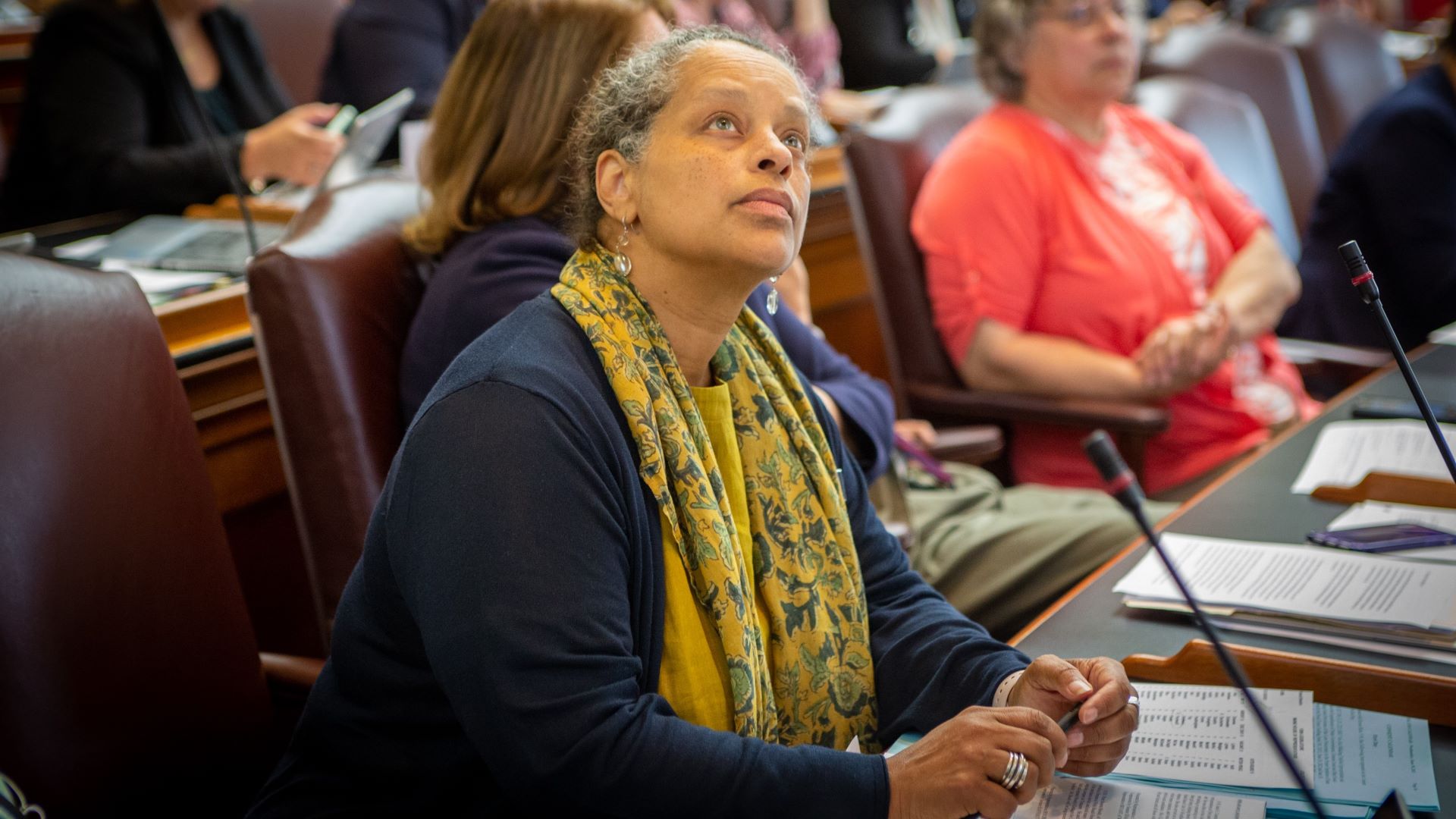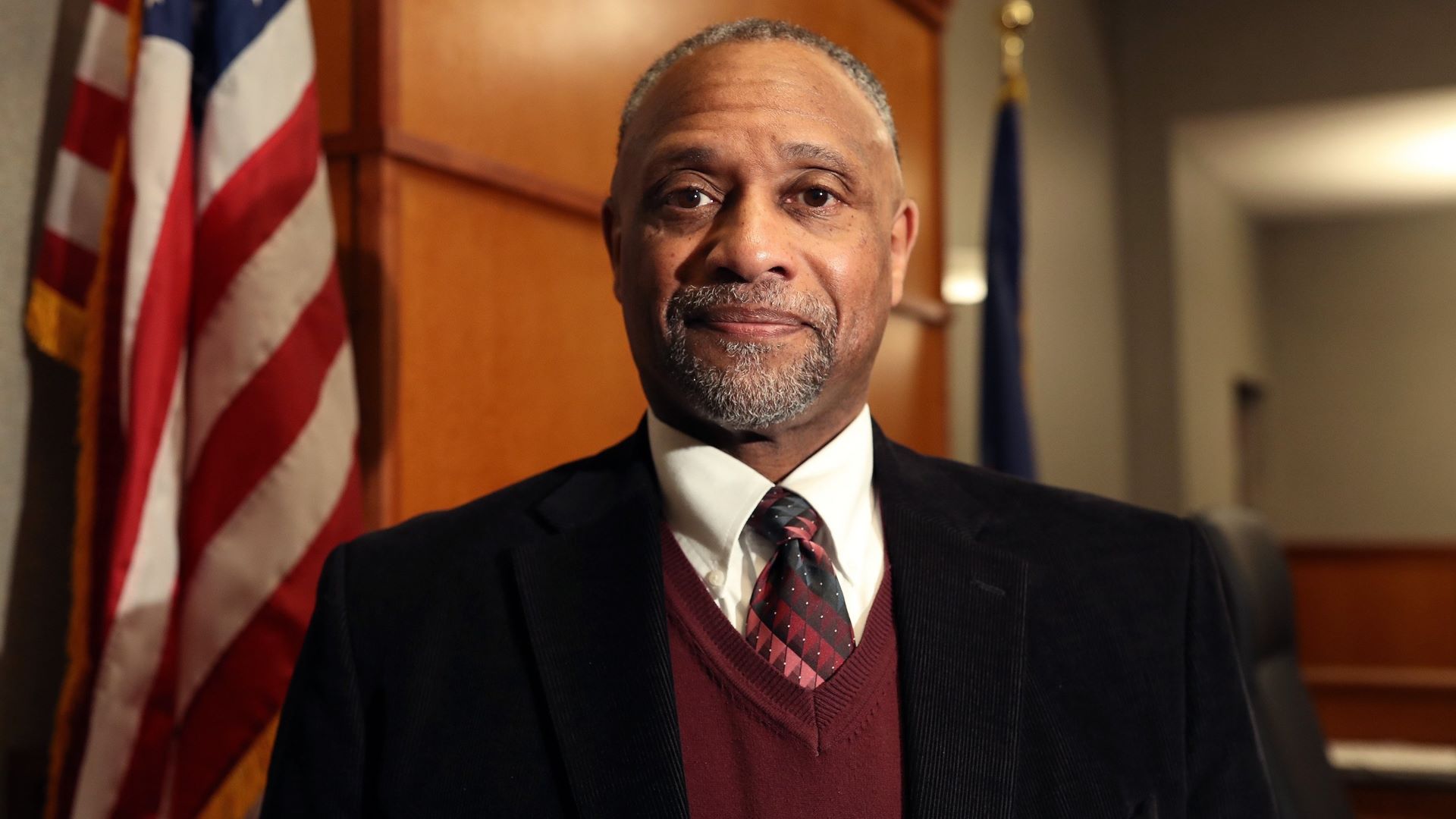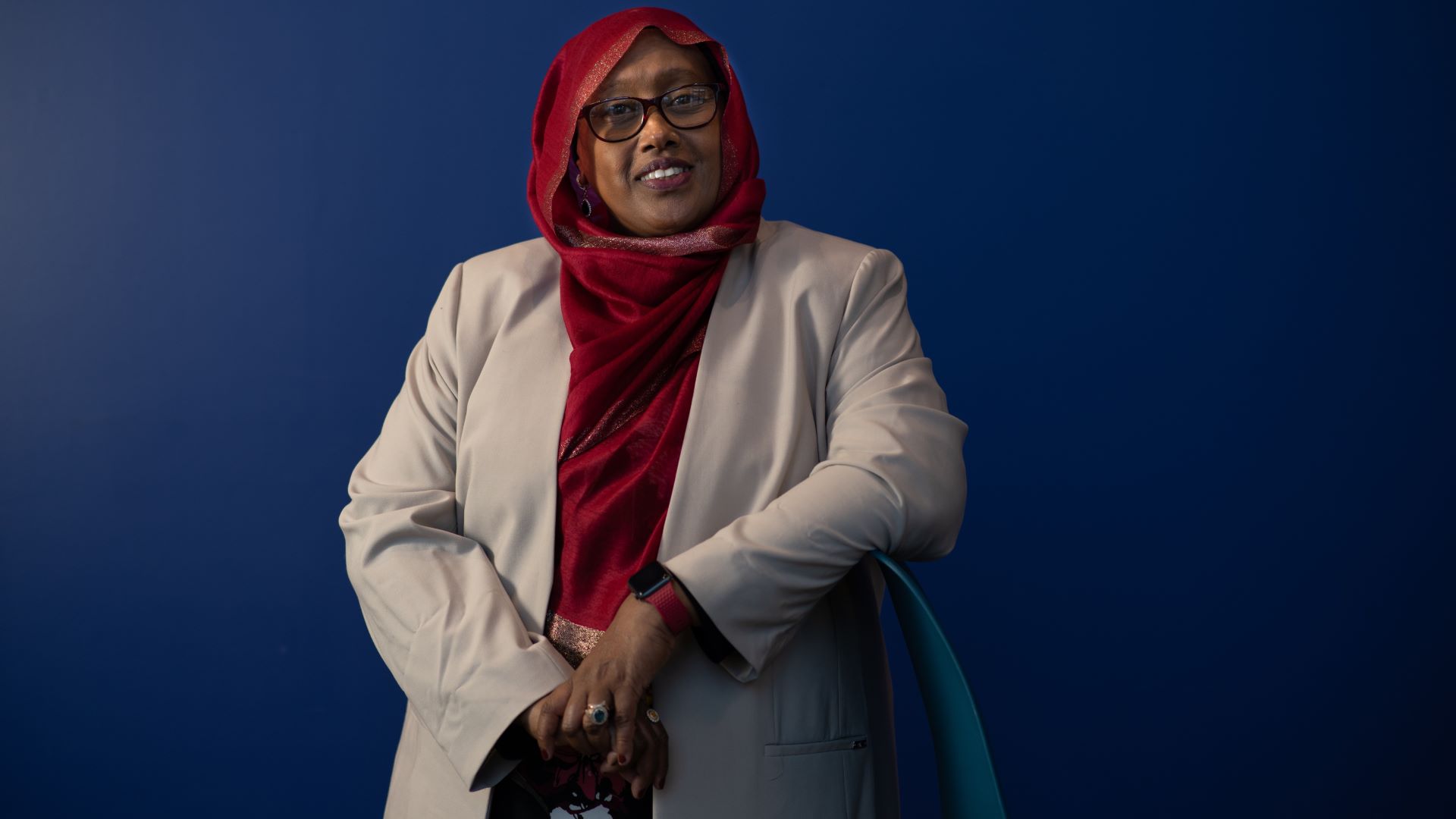Step by step, Maine’s political leadership is becoming more diverse

[ad_1]
When Jill Duson made Maine political history over 20 years ago, she was the first and only Black woman on Portland’s school board and later its city council. When she takes office Wednesday, she’ll be among five Black state lawmakers, four of whom are women.
“We keep saying we’re going to start a Black caucus,” Duson, a Democrat, said during a recent interview. “We haven’t done that yet, but it’s great to not be ‘the only’ now.”
Duson’s arrival in the state house is one of the several examples of how the country’s oldest, whitest state’s political class is changing alongside its demographics: about 9.8 percent of Maine’s residents are people of color, according to census data, an increase of 4.4 percentage points from 2010. The 131st Legislature is likely the most diverse ever, with Black people making up 2.6 percent of legislators being sworn in Wednesday. According to the U.S. Census Bureau, 1.8 percent of the state’s population identifies as Black or African American alone.
Similarly, 44 percent lawmakers serving in Augusta are women, a slight increase from 2020. But that is a big jump from 2010, when 27 percent of Maine lawmakers were women, according to Rutgers’ Center for American Women in Politics. About 50 percent of Maine residents are women, according to 2020 census results.
Those gains have been made gradually over the years. Maine’s first Black lawmaker was Gerald Talbot, a Portland Democrat, in 1972. His daughter, Rachel Talbot Ross, D-Portland, became the first Black woman lawmaker in 2016 — and this year, she becomes the first Black woman to serve as Maine’s speaker of the House.

Rachel Talbot Ross, seen watching a tally of lawmakers’ votes, will be the the first Black woman to serve as Maine’s speaker of the House. Photo by Troy R. Bennett of the Bangor Daily News.
But it was not until this year that Maine had its first Black Supreme Court judge in Rick Lawrence, who was appointed by Gov. Janet Mills — Maine’s first woman Attorney General and governor. Mary Fernandes of Casco became Maine’s first black selectwoman in 2016. A few years later in 2019, Angela Okafor and Marwa Hassanien made history as the first Black woman and Muslim woman on Bangor’s city council and school committee, respectively.
There has been more institutional support for people of color and women candidates across all levels of office, those policymakers say. But structural barriers can still keep candidates on the sidelines and political organizers say there is a need to rethink what kinds of training and support is needed as more people of diverse backgrounds are elected.

Rick Lawrence became Maine’s first Black Supreme Court judge earlier this year. Photo by Ben McCanna of the Portland Press Herald.
Duson has seen multiple firsts in her career. In addition to her city-level positions, she became Maine’s first Black mayor in 2004 for Portland. This year, she will be Maine’s first Black state senator.
Duson credits local community action groups, who recognized that as a single, working mother she would need additional support alongside campaigning efforts, with her first wins. She says she has been politically involved since she was 16 as a child who was bused to majority white schools in Pennsylvania. Now, she sees herself as someone who supports others like her to increase the diversity of the state’s decision makers.
Duson emphasized her vast years of civic and political involvement readied her for her candidacy to the state legislature. That experience includes serving on the Maine Human Rights Commission, the Portland Chamber of Commerce and the Maine Electoral College.
“I want to make sure that there’s more access to the halls of policy making, particularly for people of color and underrepresented communities,” she said. “I want my door to be open and to try and bring in people who are more experts about their issues, like the needs of refugees and how to create affordable housing.”
RELATED: Maine Reckoning podcast episode with Jill Duson
The changes in Maine come as the political landscape in America has slowly diversified. Data collected by the National Conference of State Legislatures and the Pew Research Center found that Congress and state legislatures became more racially and ethnically and gender diverse between 2015 and 2020, but were still overwhelmingly white and male. Most of those gains have been made by Democrats.
The NCSL research notes some lawmakers might self-identify differently than how they might be categorized and that analysis can be difficult when data is incomplete.
Even as Democrats have seen more diverse gains, Republicans have also seen some increases at the state level had some long-standing political women leaders. US Sen. Susan Collins is Maine’s longest serving senator. Before her were Olympia Snowe and Margaret Chase Smith.
In the Legislature, the GOP House caucus was led by Rep. Kathleen Dillingham, R-Oxford. This year, two women will lead in Republican leadership positions — Rep. Amy Arata, R-New Gloucester, is the House minority whip and Sen. Lisa Kiem, R-Oxford, is the Senate’s minority whip.
For women, the challenges of running for office have not changed much, said Ashley McCurry, who leads Emerge Maine, a political action group aimed at training Democratic women candidates to run for state office. The stipend for legislators is low and politics can often mean long days with odd hours, which can make arranging childcare difficult. Women who are breadwinners in their households might have to choose between professional and political careers. Those challenges are compounded for women of color who face additional systemic barriers to gaining political ground.
But, McCurry said more women appeared to be motivated to run after Hillary Clinton’s 2016 loss and with the repeal of Roe v. Wade by the US Supreme Court this summer. With more women and people of color in office already, that creates a pathway for others who might not have run previously — but also requires rethinking how to support those candidates so they stay in office longer, she said.
“Some of those firsts have a hard time when they get elected, and they didn’t stay,” she said. “We’re updating our training to try and make it better.”
One of those who left politics early was Safiya Khalid, who became Lewiston’s first Somali-American and Muslim city councilor in 2019. She had a lot of support when she ran and was touched when children would recognize her in the supermarket.
“It really drove home to me how much representation matters,” she said.
But Khalid found it was difficult to rally people to come to council meetings, which could be difficult for people in the city’s immigrant community to attend. At times, she felt like her fellow councilors did not believe her lived experience, and she found little support when she suffered racist attacks online.
She left after one term to pursue a public policy degree at Northeastern University, but Khalid said her experience spurred her to found Community Organizing Alliance, which focuses on getting more people of color and low-income residents involved in local politics.
There are two people of Somali heritage in the state legislature: Mana Abdi of Lewiston, and Deqa Dhalac, who has been South Portland’s Mayor.

Deqa Dhalac, most recently the mayor of South Portland, will be one of two lawmakers of Somali heritage. Photo courtesy University of New England.
Some diverse policymakers had to work to ensure that their identity, while important to them, was not the sole thing the public focused on. Marwa Hassanien, the Bangor school committee’s chair, said a reporter once insisted on calling her a person of color, even though she told him she is technically white, because her parents were Egyptian immigrants and she is Muslim. That situation was “unsettling,” she said, and she occasionally saw criticism online that people only elected her because of her identity.
It is true that Hassanien has made boosting diversity a large part of her career. She is Northern Light Health’s first diversity, equity and inclusion director, and one of her standout policies on the Bangor school board has been to put different religious holidays on the school calendar, so teachers and administrators might schedule major events around them instead of on them. But she also has a master’s degree in education and said she never thought about being the first Muslim woman to serve when she ran.
“I care so much about public education because my parents came here to give me a better life,” she said. “Our differences should be celebrated but I want people to see the whole picture.”
Caitlin Andrews covers state government for The Maine Monitor. Reach her with other story ideas by email: caitlin@themainemonitor.org.
[ad_2]
Source link

